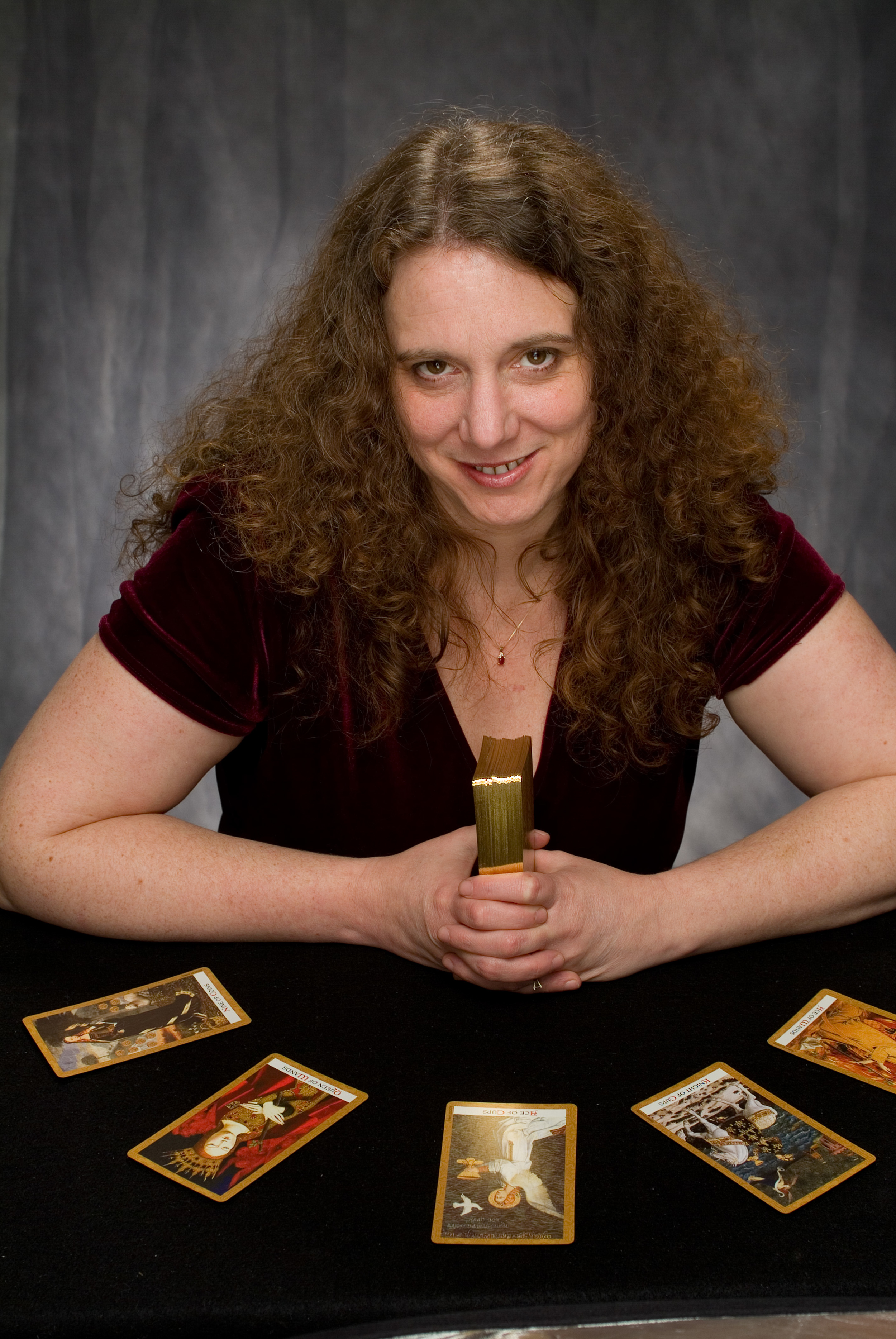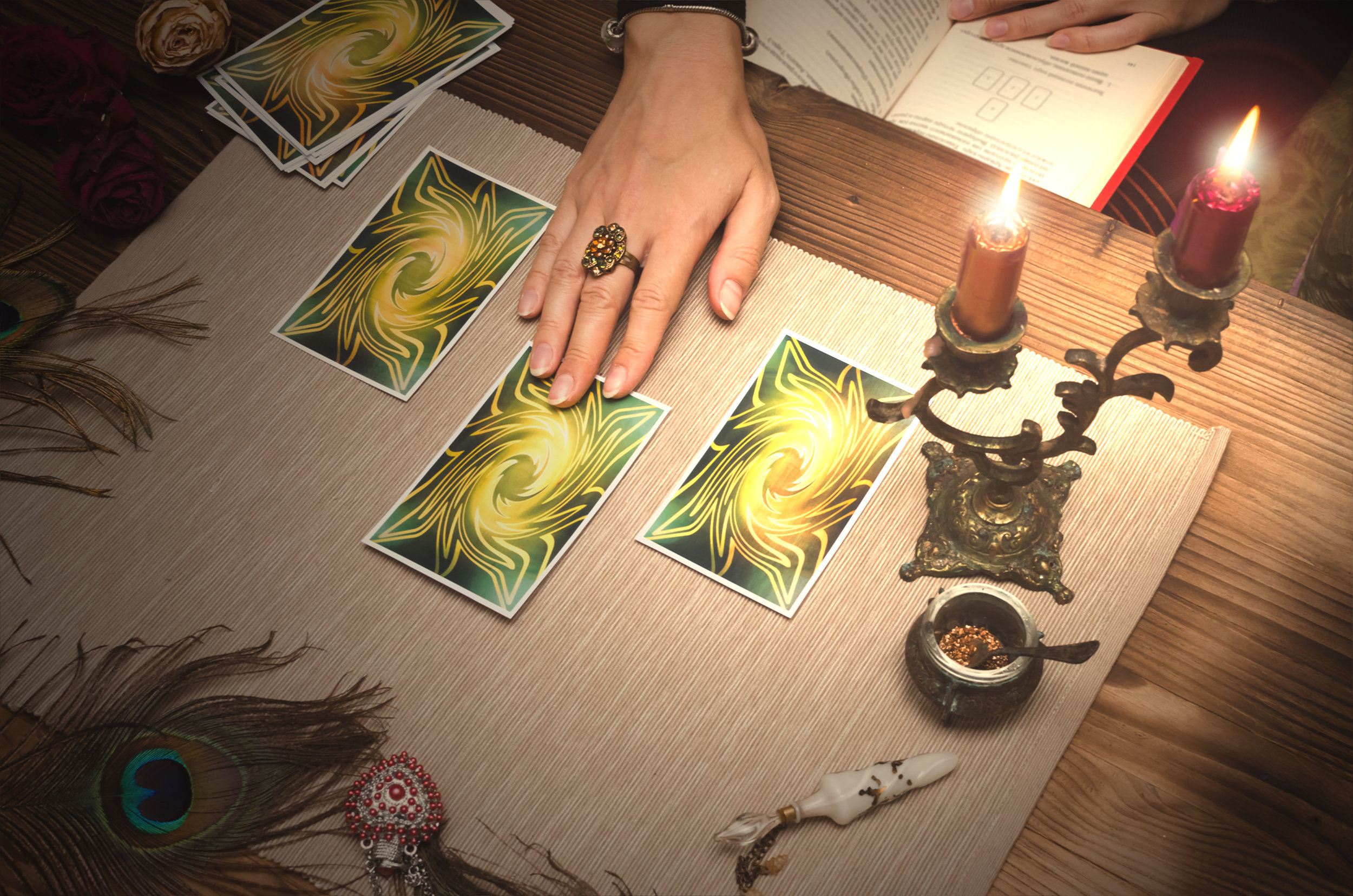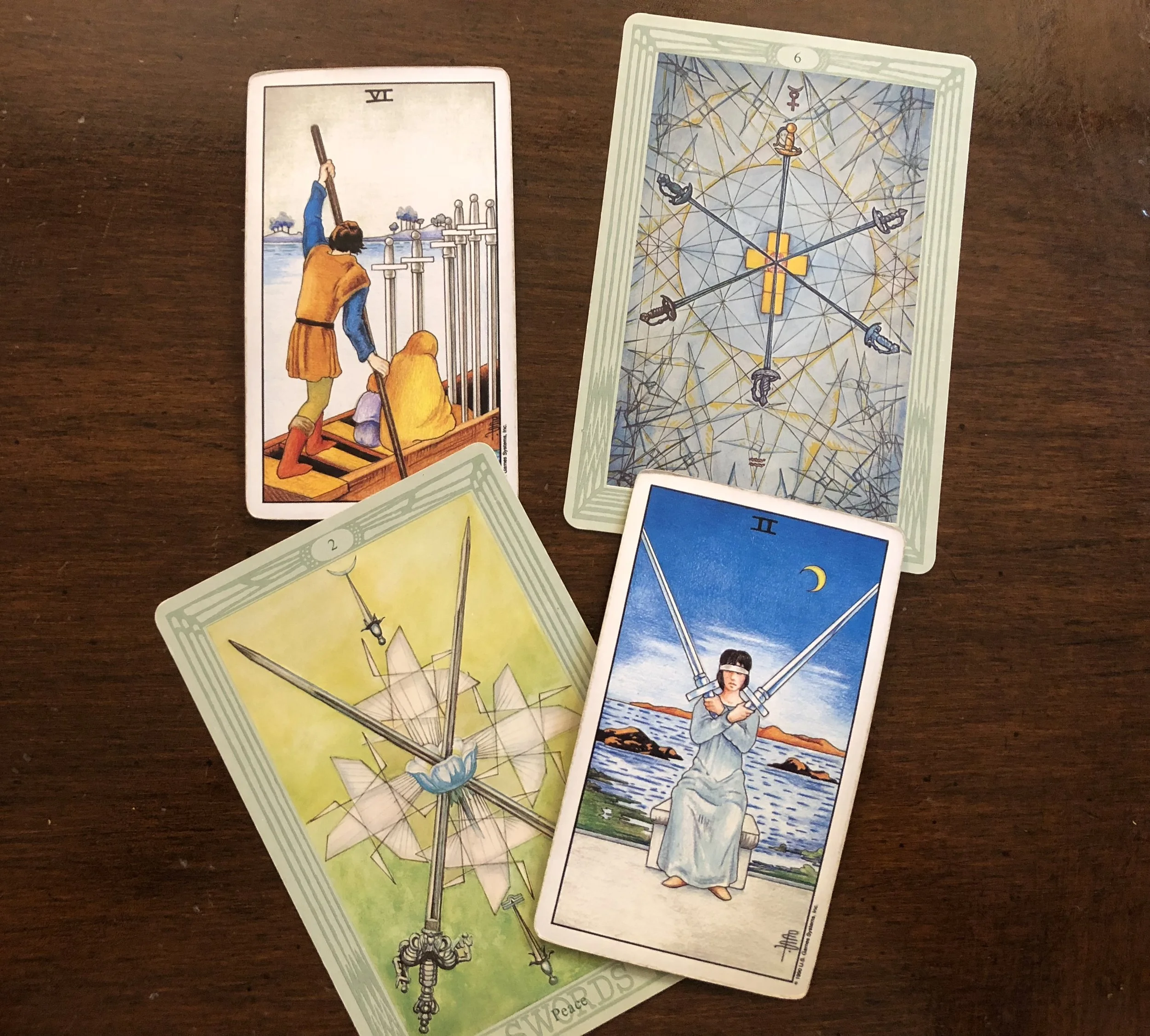
Welcome to my personal blog.
Here you will find my musings, thoughts and observations, all inspired by my experiences as a full-time professional tarot reader.
When Tarot Keywords Diverge
Divergent keywords can solidify our tarot practice.
When Tarot Keywords Diverge
Tarot interpretation is a complex thing. In a reading there are almost infinite possibilities of how a card might speak to us. Yet, there are, and must be, classic archetypes, keywords, and card meanings from which those infinite possibilities spring.
This divergence of meaning is further complicated by the difference between tarot traditions. For example, Crowley called the Two of Swords ‘Peace’. Most Waite readers will see the Two of Swords as a card of decision-making. A wise tarotist adds all the possibilities and traditions to their toolbox. One never knows when a meaning from a different tradition will pop into your mind as the precise message needed in the reading at hand.
The exercise of finding the connection point between different traditions can help us explore new possibilities for the cards. In the example of the Two of Swords, this card now often shows up for me to mean the need to be at peace with indecision in the moment.
When we find that a keyword or understanding we hold for a particular card is different from how many of our peers see it, it’s a good exercise to figure out how that happened. Is it a difference in traditions? Did you have a particular experience with this card that influenced your understanding of it? Was there a particular author or deck that introduced a new possibility for this card?
For example, in Chrysalis Tarot, the Hierophant is the ‘Divine Child’. In making the leap from the Pope to a ‘divine child’, they had forever added this possibility to our understanding of Major Arcana 5.
One card for which I have a solid and simple understand that is different from many of my peers is the Three of Wands. I see the Three of Wands as a first victory, and a harbinger of success. Many of my tarot friends find the Three of Wands to be more about possibilities than actual success.
Crowley calls the Three of Wands ‘Virtue’. Here we see the concept of opportunity and possibility, versus my understanding of confident success.
Of the Three of Wands, Waite says, “established strength, enterprise, effort, trade, commerce, discovery; those are his ships, bearing his merchandise, which are sailing over the sea”. Clearly, my understanding of this card is directly influenced by Waite, the designer of the tradition with which I most resonate. That makes sense.
It’s a good practice, when we find ourselves wondering about divergent card keywords and meanings, to go to source texts to discover what has influenced our own understanding, and the understanding of others. In doing so, there is an opportunity to solidify and expand our relationship with each card we contemplate.
Tarot Fusion
I am a Waite-Smith reader who uses some Crowley keywords. This is my confession.
I am a Waite-Smith reader who uses some Crowley keywords. This is my confession.
One of the things that separates the Crowley-Harris-Thoth deck from the Waite-Smith deck is the keywords on the Minor Arcana cards. To my knowledge, Crowley was the first to use printed keywords on the cards, though many card designers have followed suit (pun intended). Some decks use the actual Crowley keywords, some don't.
I am not a fan of all of Crowley's keywords. For example, I don't see the Seven of Disks/Pentacles as "Failure". I don't see the Five of Swords as "Defeat".
Yet, there are some Crowley keywords that I love. Those keywords have given me a more complete understanding of specific cards.
My two favorites are "Peace" for the Two of Swords and "Science" for the Six of Swords. I also love "Works" as opposed to "Work" for the Three of Pentacles.
When we look at the Waite Two of Swords we think of decision-making. Adding "peace" to that concept allows for a time when a decision can't yet be made. It gives us permission to be at peace with our indecision as we wait to hear our guidance.
The Waite Six of Swords clearly speaks of sailing toward smoother waters, but how are they doing that? What is making the waters smoother for them? This, for me, is where Crowley comes in. "Science" makes sense when we look at the Waite image. How are those swords staying up in the boat like that? The airy, logical swords are floating above the waters of emotion. For me, the "Science" keyword offers the advice inherent in this card. When this card appears, I often find that the way to those smoother waters is to think logically, scientifically, rather than emotionally.
I used to wonder if my cherry-picking of Crowley's tarot wisdom and adding it to my understanding of Waite's deck was something of a tarot abomination. Crowley and Waite hated each other in life. In fact, the Crowley tarot was in many ways an in-your-face response to Waite's publication of his deck. I've pondered on the relationship between Waite and Crowley before , wondering what it would have been like if they had had social media.
I have also wondered if my combining of tarot traditions might be frowned upon by traditionalists. It felt a little like invoking Celtic and Egyptian deities in the same ceremony.
Then I thought about my favorite fusion restaurant, where my husband could order steak and potatoes and I could order malai kofta.
There are times when the mixing of traditions and cultures can be confusing at best, and disrespectful at worst. There are other times when the mixing of traditions gives us the best of many worlds.
These days I don't think my brand of tarot fusion is confusing or disrespectful. For me, tarot reading is an operational thing. Whatever gives the best readings is the right thing to do. Adding a few resonant Crowley keywords to my Waite tarot vocabulary expanded my tarot practice exponentially.
This is particularly interesting at a time when many new tarot decks are being published and some of them with slightly (or, in some cases, grossly) different meanings than what we would consider classic.
I have heard a certain tarot wisdom that suggests we learn a deck creator's meanings for their deck, and refrain from using other interpretations. While it is certainly helpful to understand what a deck creator was thinking when they took a departure from traditional tarot, I don't think we are ever bound to a deck creator's concept of the cards.
In some ways, the body of tarot is a living thing. Any new deck or book adds to that body of knowledge.
I think we need to be free to use tarot knowledge wherever we find it, and apply it to whichever decks we prefer, regardless of the intent of the deck creators.
In this way, we allow tarot to be the best tool it can be, which is what any deck creator would want for their creation.



